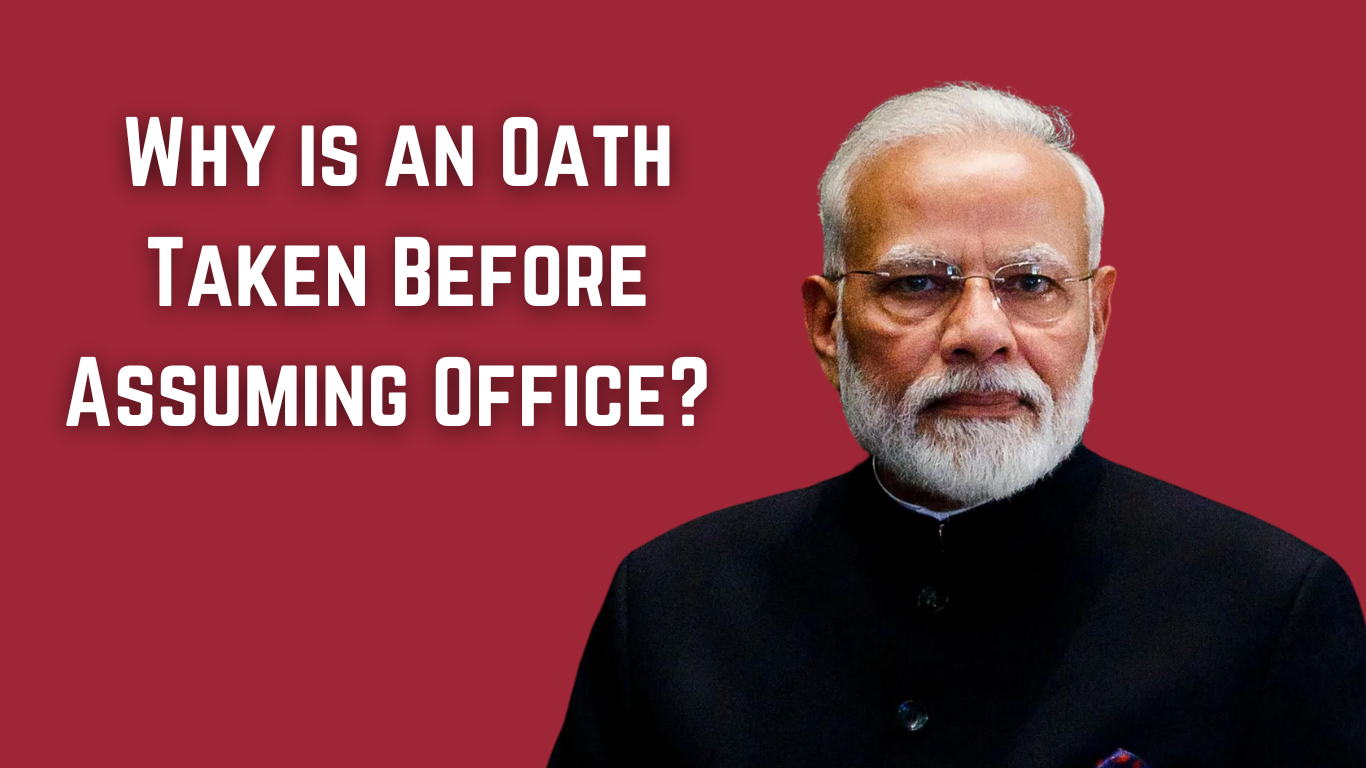Have you ever wondered why oath-taking ceremonies are so important? Why do the President, Prime Minister, Chief Ministers, Panchs, and Sarpanchs take an oath? What are the constitutional regulations regarding oath-taking in India, and are there penalties for breaking or violating this oath?
Today, BJP leader Narendra Modi will be sworn in as Prime Minister for his third term, with the ceremony scheduled for Sunday evening. Along with him, numerous MPs from the NDA alliance will also take their oaths as Union Ministers, according to NewsX sources. Prominent leaders and guests from around the nation and the world have gathered in Delhi to witness this historic occasion.
So, what is the significance and tradition of oath-taking in Indian politics?
Importance of Oath-Taking
MPs, MLAs, the Prime Minister, and Ministers must take an oath to respect the Constitution of India before assuming office. Without taking the oath, an MP or MLA cannot participate in any government work. They will not be allotted a seat in the House, allowed to speak, give notice, raise issues, or receive a salary and facilities. The oath is a crucial process for assuming a constitutional post, enabling participation in government work and parliamentary proceedings. This ceremony signifies their pledge to:
- Uphold the dignity of their position.
- Act with honesty and impartiality.
- Preserve the sovereignty and integrity of the country.
The Content of the Oath
The President, Prime Minister, Ministers, Panch-Sarpanch, and government servants swear to uphold the dignity of their position, work with honesty and impartiality, and maintain the sovereignty and integrity of the country. The oath can be taken in any Indian language, including Hindi and English. Notably, Shankar Dayal Sharma, the 13th President of India, took his oath in Sanskrit.
The oath for ministers consists of two parts:
- Oath of Office: MPs and MLAs vow to maintain the dignity of their post, work with honesty and impartiality, and uphold the sovereignty and integrity of the country.
“I <name> swear in the name of God that I will bear true faith and allegiance to the Constitution of India as by law established. That I will uphold the sovereignty and integrity of India. That I will faithfully and conscientiously discharge my duties as Prime Minister of the Union. And that I will do justice to all manner of people without fear or favour, affection or ill-will according to the Constitution and the law.”
2. Oath of Secrecy: MPs and MLAs appointed to ministerial posts at the Centre and in states take an oath of secrecy.
“I <name> swear in the name of God that I will not communicate or disclose, directly or indirectly, any matter which shall be brought to my consideration or shall become known to me as Prime Minister/Minister of the Union, to any person or persons except as may be required to do so in the discharge of my duties as Prime Minister.”
The President initiates the oath-taking ceremony for the Prime Minister and Ministers.
Do All Elected MPs Take Oaths?
Yes, all elected MPs from the 543 seats across the country are sworn in the Lok Sabha. The Prime Minister and Ministers also take the oath of MP in the Lok Sabha.
Constitutional Rules for Oaths
According to Article 75, the Prime Minister must take the oath before the President. A specific oath form is followed, which the Prime Minister reads and accepts. After the oath, an official certificate is issued, detailing the date and time of the oath-taking. The Prime Minister must also sign this certificate.
The rules regarding oaths are detailed in various articles of our constitution:
- Article 60: Oath of the President
- Article 75(4): Oath of the Prime Minister and Ministers
- Article 99: Oath for all members of Parliament
- Article 124(6): Oath-taking of Supreme Court judges
- Article 148(8): Oath of the Comptroller and Auditor General
These rules highlight the importance of oaths in a democracy.
History and Tradition of Oath-Taking
References to oaths appear throughout Indian history, including in epics like the Ramayana and Mahabharata, where oaths were taken in the presence of one’s idol or nature as a witness. In 1873, the British government implemented the ‘Indian Court Act,’ which involved taking oaths on religious books. After independence, the Indian Court Act was amended in 1969 to become the ‘Oath Act,’ making the process secular. However, courts later reintroduced the practice of taking oaths in the name of God.
The first swearing-in ceremony after independence was for Prime Minister Jawaharlal Nehru, administered by Governor-General Lord Mountbatten.
Consequences of Breaking an Oath
If someone in a constitutional position violates the confidentiality limits of their oath, they may face impeachment. Typically, no criminal case is filed, but if embezzlement is involved, a criminal case can be registered.
Historical Context of Oaths in India
Oath-taking has been part of Indian tradition since ancient times. In the Vedic period, sages took oaths during religious rituals. The Ramayana and Mahabharata also depict various characters taking oaths, highlighting the long-standing cultural significance of this practice. This tradition continued during the Mughal and British periods and remains a fundamental aspect of the Indian Constitution post-independence.























